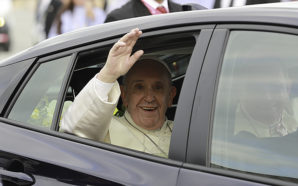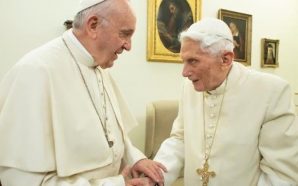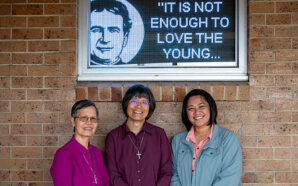In the late 1960s, Hannah Arendt wrote a short book on figures in public life who she thought deserved critical attention. The title of the book was Men in Dark Times. Arendt chose the title not because she was intending to be deeply pessimistic or even apocalyptic, but for quite the opposite reason: She believed we come to know the darkness of the times, and combat the gloom, through the lives of those who resist the despair and cynicism and find a way to chart a different path. These are the women and men who come to offer us illumination, and, Arendt asserts, in dark times we have a right to demand some illumination.
Fratelli Tutti is a text that hopes to inspire a new generation of lives that might offer some such illumination. As a text it is imperfect and not entirely systematic; has significant omissions not least in relation to women’s contribution, expertise, and experience; is strongly shaped by a European, Latin, and North American lens; and probably shouldn’t be attempted in a single reading. Nonetheless, it is without question a letter that offers deep illumination and seeks to inspire the same as a lived reality. In its reach, the strength of its critique and in its constructive and open-ended vision for the future, Fratelli Tutti offers a spiritual and intellectual intervention we cannot afford to ignore.
The core of the document is an exposition of society through the moral lens of human kinship. Francis tells us that the politics and theology of naming matters: Before we are anything else, we are brothers and sisters, and, as such, we are called to become neighbours and friends. This logic has a universal reach, and it takes us beyond the boundaries of our own nation-states.
To continue reading this reflection, click here.
Dr. Anna Rowlands is the St. Hilda Associate Professor of Catholic Social Thought and Practice in the Department of Theology and Religion at Durham University, UK. Her publications include The T&T Clark Reader in Political Theology (2020, co-editor) and Towards a Politics of Communion: Catholic Social Teaching for Dark Times (forthcoming)
With thanks to the Berkley Centre for Religion, Peace and World Affairs at Georgetown University, Washington DC, where this article originally appeared.








